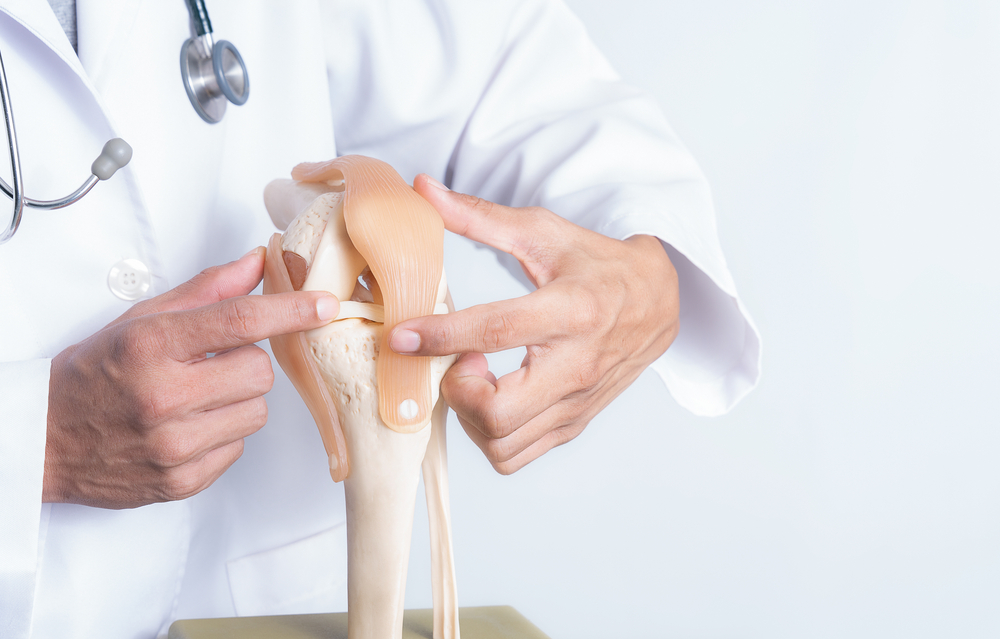Can You Regrow Cartilage? The Truth About Knee Damage and Regeneration
The structure of the knee is complex, comprising bones, cartilage, ligaments, tendons, and synovial fluid that work together to provide stability, mobility, and support. The primary bones include the femur (thigh bone), tibia (shin bone), and patella (kneecap), which articulate to form the knee joint. Articular cartilage covers the ends of these bones, ensuring smooth movement and acting as a shock absorber. The knee is stabilized by ligaments, including the anterior cruciate ligament (ACL) and posterior cruciate ligament (PCL), which prevent excessive forward and backward movement, and the medial and lateral collateral ligaments (MCL and LCL) that provide support against sideways forces. Tendons attach muscles to bones; the quadriceps tendon connects the quadriceps muscle to the patella, while the patellar tendon links the patella to the tibia. Synovial fluid lubricates the joint, reducing friction and facilitating movement, crucial for everyday activities and sports as per Orthopedician in Kondapur .

What could cause a cartilage to degenerate as per Best Orthopedic Doctor in Kondapur ?
- Age: Aging leads to a natural decline in cartilage resilience and repair ability.
- Osteoarthritis: A common degenerative joint disease characterized by the breakdown of cartilage due to wear and tear.
- Injury: Traumatic injuries or repetitive stress can lead to damage and subsequent degeneration of cartilage.
- Obesity: Excess weight increases stress on weight-bearing joints, contributing to cartilage breakdown.
- Inflammation: Chronic inflammatory conditions, such as rheumatoid arthritis, contribute to cartilage destruction.
- Poor Nutrition: A diet lacking in essential nutrients can impair cartilage repair and maintenance.
- Overuse: High-impact sports or repetitive joint usage without adequate rest can accelerate cartilage wear.
- Hormonal Changes: Hormonal fluctuations, particularly in menopause, can affect cartilage health.
- Metabolic Disorders: Conditions like diabetes can influence cartilage degeneration through metabolic irregularities.
Signs of cartilage degeneration of the knee as per Best Orthopedic surgeon in Ameerpet :
- Knee Pain Treatment in Hyderabad: Localized pain in the knee joint, which may worsen with activity and improve with rest.
- Swelling: Inflammation can lead to noticeable swelling around the knee, especially after prolonged use.
- Stiffness: Morning stiffness or stiffness after periods of inactivity, making movement difficult.
- Reduced Range of Motion: Difficulty bending or straightening the knee fully, restricting normal movement.
- Creaking or Crunching Sounds: Audible noises (crepitus) during movement, indicating rough surfaces in the joint.
- Tenderness: Sensitivity or tenderness when pressure is applied to the knee joint.
- Joint Instability: Feeling as though the knee might give out or buckle during weight-bearing activities.
- Bone Spurs: Development of bony growths around the joint due to degeneration as per Knee Pain Doctor in Ameerpet .
- Muscle Weakness: Weakness in the thigh muscles supporting the knee joint due to disuse or pain.
- Decreased Activity Levels: Avoidance of activities that exacerbate symptoms, leading to inactivity and reduced quality of life.
Cartilage has a limited ability to regenerate on its own due to its unique structure and lack of blood supply. This connective tissue, which cushions joints and facilitates smooth movement, is primarily composed of chondrocytes embedded in a dense extracellular matrix. While cartilage can heal minor injuries through the proliferation of chondrocytes and synthesis of matrix components, this process is often insufficient for large defects or degeneration, such as in osteoarthritis. Factors such as age, injury severity, and the specific area of damage can further impair regeneration. Because of these limitations, advanced therapeutic approaches by Dr. M. Ranganath Reddy such as stem cell therapy, tissue engineering, and surgical interventions are often explored to enhance cartilage repair.
Therapies that can help regenerate cartilage by Best Knee Pain Specialist in Kondapur :
- Physical Therapy: Customized exercise regimens improve mobility and strengthen surrounding muscles, supporting cartilage health.
- Platelet-Rich Plasma (PRP) Therapy: Involves extracting a concentration of platelets from the patient's blood and injecting it into the affected joint to promote healing.
- Stem Cell Therapy: Uses stem cells, often derived from bone marrow or adipose tissue, to potentially regenerate cartilage by differentiating into cartilage cells.
- Hyaluronic Acid Injections: Involves injecting hyaluronic acid into the joint, which can lubricate and may stimulate the production of cartilage.
- Bone Marrow Concentrate: Combines stem cells and growth factors from bone marrow to aid in tissue regeneration when injected into damaged areas.
- Microfracture Surgery: A surgical technique that creates small holes in the bone to stimulate the growth of new cartilage.
- Tissue Engineering: Employs scaffolds and biological factors to encourage cartilage regeneration in a laboratory setting before transplanting into the body.

